It’s reasonable to question benefits of AUKUS
It’s easy to understand why it suits the Americans to offload some of the security responsibility for containing China. But is that in our interests too?
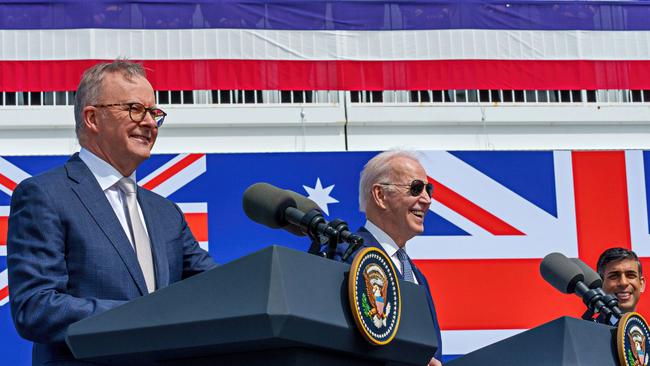
The contested point is whether the $368bn nuclear-powered subs deal is good for Australia. Surely the quantum to be spent is reason to pause for thought before jumping on board with the decision.
These subs aren’t designed to patrol our coastline. They are designed to go deep underwater for months at a time, secretly positioning themselves and their formidable weapons systems off the Chinese coast and along our trading routes. Our enduring alliance with the US and Britain is about to take a very different posture.
The bipartisan consensus – supported by most commentators – is that this week’s subs deal is fantastic. Keating is adamant it’s not: “I want my name clearly recorded among those who say it is a mistake … it does not offer a solution to the challenge of great power competition in the region or to the security of the Australian people and its continent.”
Under the deal, we will buy nuclear-powered subs from the US during the coming decade, building them here in the decade after that. So what happens in the meantime? We upset China before deriving any benefits from what will be acquired further down the line, even assuming the military benefits promised.
Does this deal increase the risk of short-term conflict in Taiwan if China decides now is the time to strike, before the growth in AUKUS operational capabilities? Perhaps, but the hope is that sanity prevails, which isn’t always the case. Despite China’s growing dominance in supersonic missiles, fifth-generation fighters and cyber warfare, it is questionable whether Beijing has the ability for, much less the interest in, a hot war against the US and its allies.
Its navy is growing fast but remains well behind the capabilities of the US. Advocates for AUKUS claim the growth of China requires vigilance, and they may be right. Governments may know more than they can let on. Or their intelligence could be wrong.
Any emerging superpower – good or bad – will want to project its might to some degree. It doesn’t necessarily mean it will become an expansionist threat.
Just over a decade ago, Henry Kissinger noted that China “is the heir of the Middle Kingdom tradition, which formally graded all other states as various levels of tributaries based on their approximation to Chinese cultural and political forms”. Such subservience wouldn’t leave a whole lot of room for opinionated columnists of US and Dutch heritage who constantly bang on about the importance of democratisation.
Yet most scholars agree China’s interests aren’t expansionist beyond the traditional Middle Kingdom borders. Which is why Taiwan is such a challenge. Keating is therefore correct in predicting Australia is unlikely to ever be invaded. But that doesn’t mean we wouldn’t become subservient in a way that cuts against our values.
Australia has to decide if we are prepared to go to war to preserve Taiwanese independence and democracy. The US positioned itself as willing to do the former long before the latter became a reality in Taiwan. This week’s subs deal puts Australia right in the thick of whatever comes next as the great powers duke it out in the region.
Keating told the National Press Club: “Anthony Albanese screwed into place the last shackle in the long chain the United States has laid out to contain China.”
If China were a democracy asserting itself on the world stage the way it is now, I would comfortably sit in its corner, not that of the US. But it’s authoritarian, which worries me greatly. That, however, doesn’t make Keating wrong when he calls out downsides attached to the subs deal, even if he brushes over ongoing Chinese atrocities.
Some hope the difficulties in Ukraine encountered by the invading Russians will check Chinese ambitions, at least for a while. But the Chinese also may learn from those mistakes and strategise more successfully. That’s arguably what China did with its embrace of capitalism, learning from mistakes previously made in the West.
You can call out China as a non-democracy and still oppose this week’s subs deal. China hawks claim doing so shows weakness and puts democratic rhetoric ahead of action to preserve democratic ideals.
The bigger discussion – whether the subs ultimately help achieve what advocates claim they will – is what are Australians prepared to sign up for in the years to come. Because choices in our world and our region are becoming binary.
Australia can tie itself tighter to its Western alliance with the US and find itself at the epicentre of future conflicts with China. Whether those remain cold or intensify into hotspots, or total war, is unknown. We would be putting ourselves at greater risk to protect the US world order, from which we do derive benefits.
Or we can check out from such activism. Accept that without our geopolitical will as an important, but not indispensable, middle power the US will struggle on but may choose to withdraw from our region rather than seek to control it, leaving us more exposed. We aren’t likely to be invaded by China but would be at risk of becoming a vassal state. Keating would claim we already are, but to a great power bearing the Stars and Stripes.
The US hopes that via alliances with the likes of Britain, Australia, South Korea and Japan it can contain China. What containment looks like isn’t clear, nor necessarily in our national interests. It’s also evolving at a rate of knots.
To an extent, the effort is merely a holding pattern while we wait to see what happens with India. Will it grow swiftly enough to act as a counterweight to China? It has the population to do so. But will it adhere to democratic principles or will fascism and hyper-nationalism take over, complicating the global order even further?
And what happens with Indonesia, which has a smaller economy than Australia’s? The nation with the largest Muslim population is projected to expand its economy to double the size of ours by 2040, becoming the fourth-largest in the world a decade later. All just as our first home-built nuclear-powered subs hit the water if the project runs to schedule. Indonesia already has expressed some concerns about the militarisation.
None of us should be fans of an undemocratic China, and the challenges across our region are cause for concern. I’ve been an advocate for the importance of our enduring alliances but it is unclear to me whether this subs deal helps us or has unintended consequences that could make a bad situation worse.
It’s easy to understand why it suits the Americans to offload on to us some of the security responsibility for containing China and preserving their sphere of influence. But is that in our interests too? Less than a week on from the announcement, I’m still sitting on the fence.
Peter van Onselen is a professor of politics and public policy at the University of Western Australia and Griffith University.


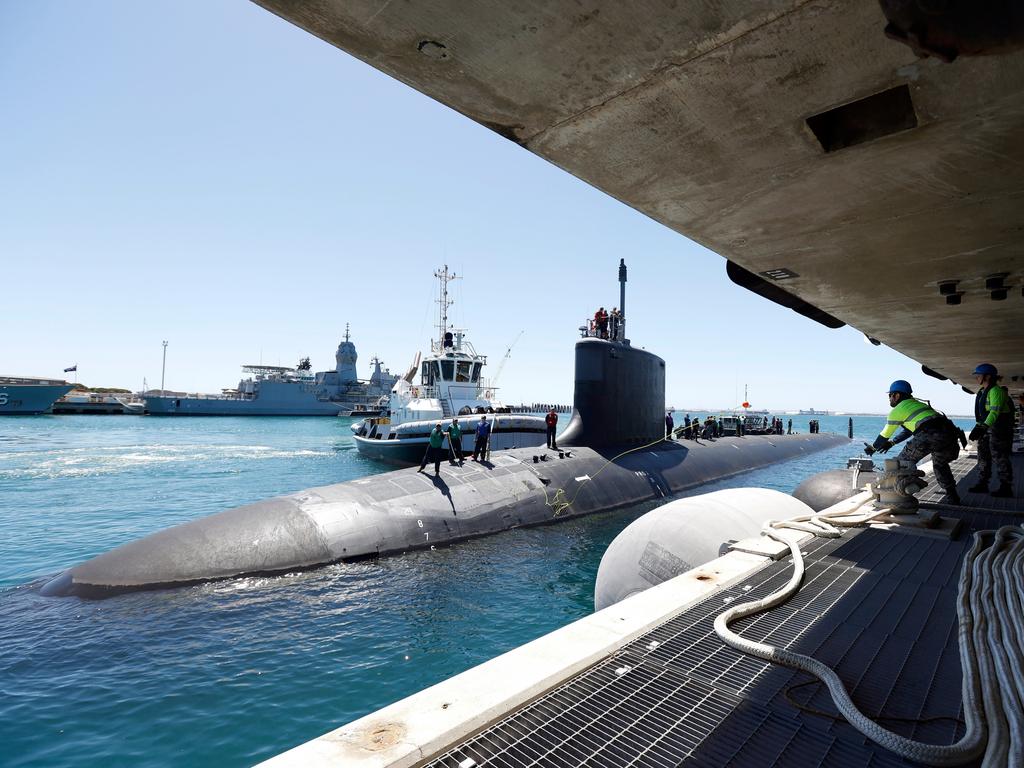
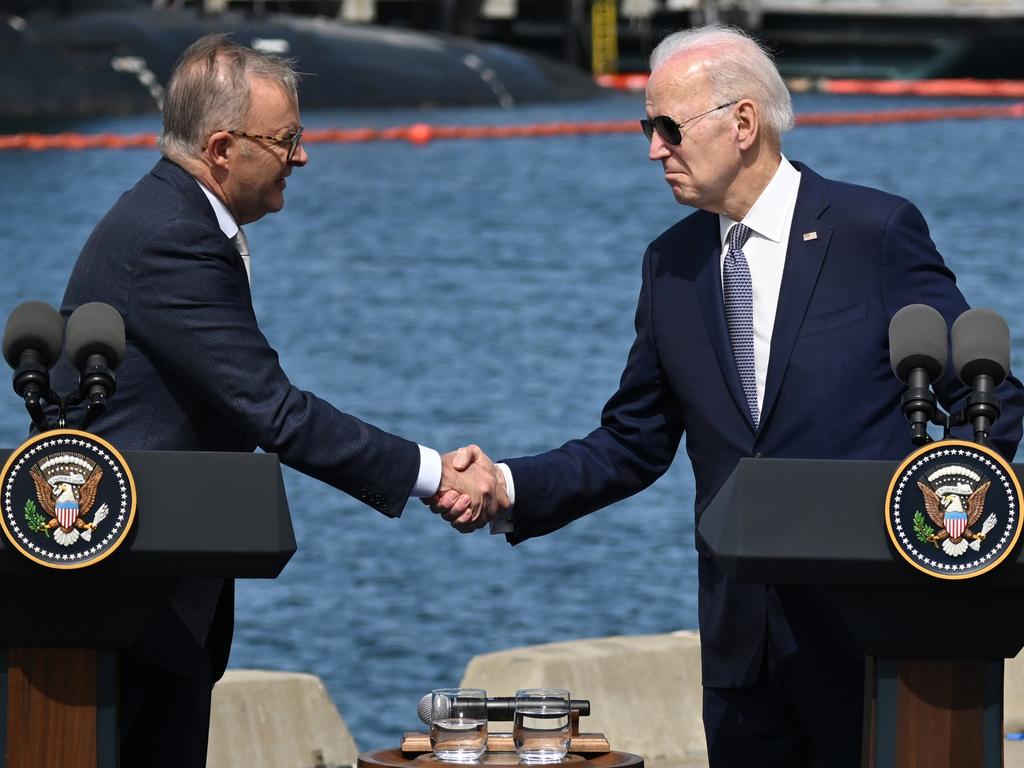
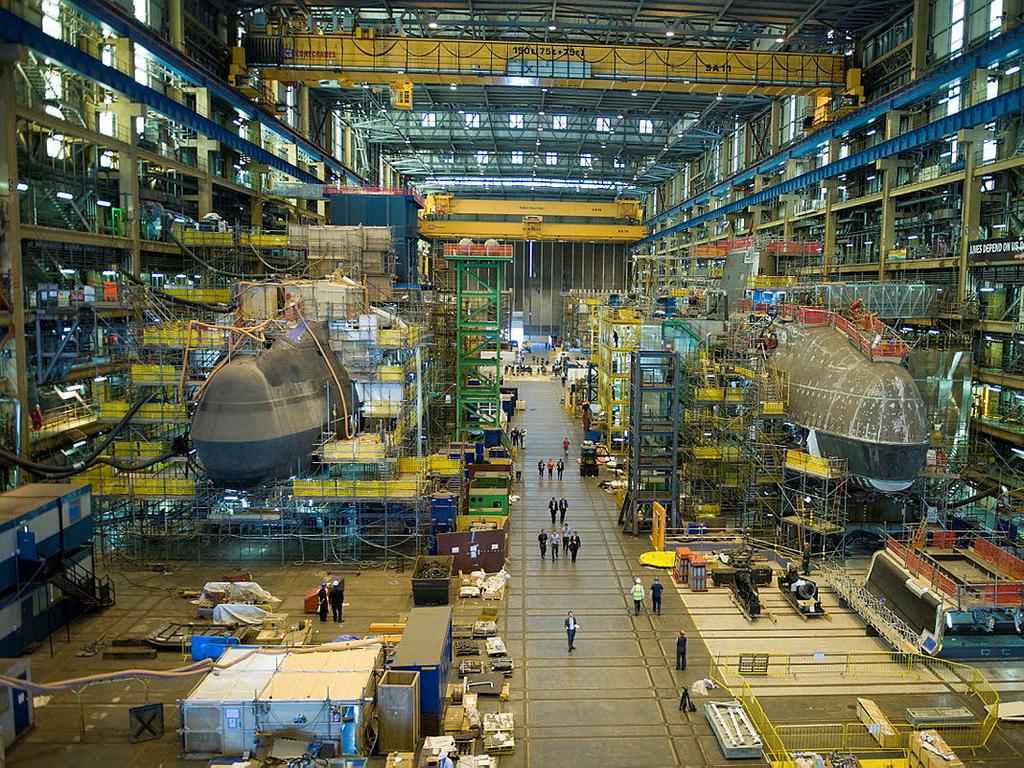
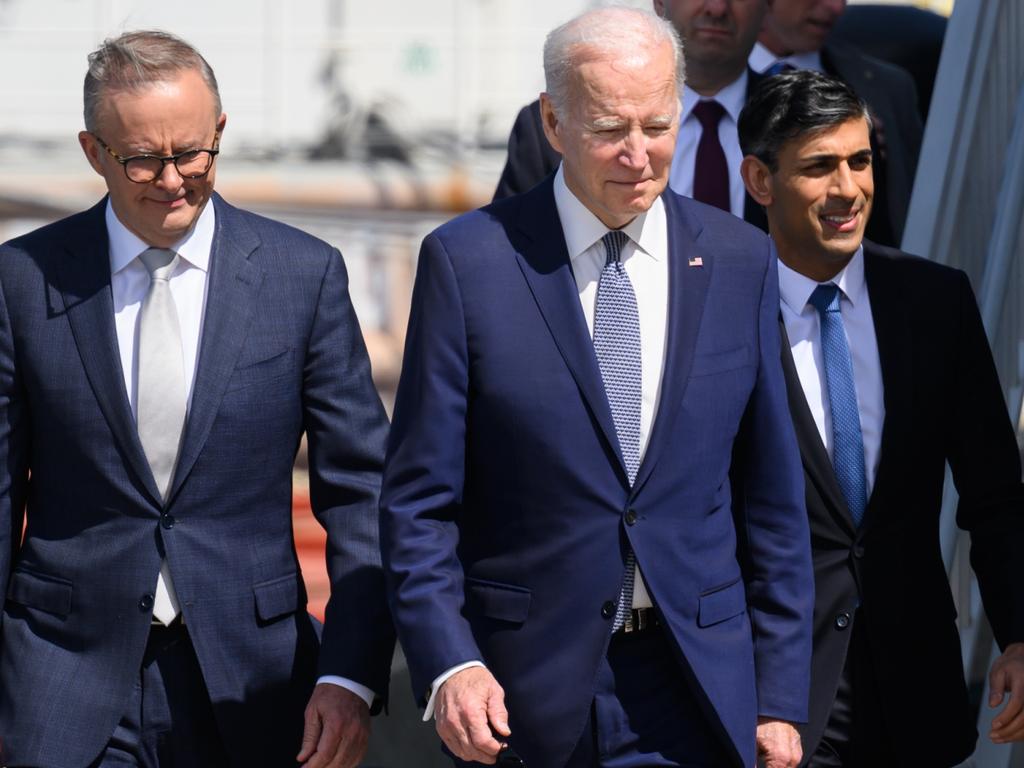


While Paul Keating’s rhetorical putdown of the Albanese government’s decision to cosy ever closer to the US and Britain as part of AUKUS earned a stern rebuke from most quarters, I wonder if his critics doth protest too much.